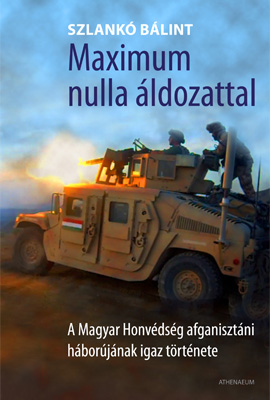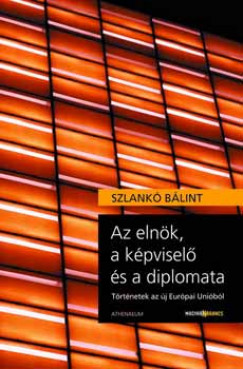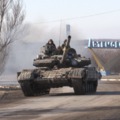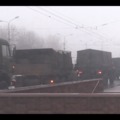C O N F I D E N T I A L SECTION 01 OF 05 KABUL 001239 CORRECTED COPY -TEXT SIPDIS DEPARTMENT FOR SRAP, SCA/FO, SCA/A, EUR/RPM STATE PASS USAID FOR ASIA/SCAA E.O. 12958: DECL: 04/09/2019 TAGS: PGOV PREL KDEM EAID AF SUBJECT: SUBJECT: AFGHANISTAN: A SNAPSHOT OF THE NORTHEAST KABUL 00001239 001.6 of 005 Classified By: PRT and Sub-National Governance Director Valerie C. Fowler for reasons 1.4 (b) and (d) ¶1. (U) Summary: A recent trip to the northeast by a representative of the Embassy's Provincial Reconstruction Team-Sub-National Governance team confirmed the presence there of a number of the same challenges thwarting progress elsewhere in Afghanistan. It also served to dispel a few misconceptions about the region. Among the challenges are poor governance and corruption. Among the misconceptions dispelled are the notions that there are only negligible security issues in the northeast and that development assistance, particularly from the Germans, is readily available to address the most pressing needs. In fact, there appears to be a genuine threat to future ISAF resupply convoys through Kunduz. As far as development aid is concerned, Germans on the ground are frustrated by the limits and constraints under which they have to operate; and funds available from the Hungarians in Baghlan province provide only a drop of help in a desert of need. End Summary. Security: More Dangers than Sometimes Assumed --------------------------------------------- - ¶2. (SBU) The fact that the PRT came under RPG attack during Emboff's visit risked coloring his impressions regarding security in the northeast; but in fact, there do appear to be some serious security issues needing to be addressed. Clearly the most compelling is the festering situation in Chahar Darrah district in Kunduz. It is a bit unnerving to realize that villages literally a stone's throw from the main north-south road linking Kabul to the border crossing with Tajikistan at Sherkan-Bandar are in a security no-go area owing to the presence there of insurgent elements. This is hardly an abstract concern, given increased prospects of ISAF using the road as an important resupply route. A joint ANSF/German operation in the district from late December to mid-January managed to expel mid-level insurgent commanders and suppress low-level fighters. Key leaders, however, have been moving back into the district and the PRT in Kunduz is expecting the worst this summer. As the then-PRT commander reasoned in late March, the Taliban feel a need to surge in order to demonstrate their reach, especially in light of the influx of additional U.S. troops to Afghanistan. ¶3. (C) Rocket attacks on the PRT and a rise in IED incidents in the area are seen as a harbinger of things to come. The same German commander (the position shifts every six months) was more rigorous than some of his predecessors in addressing the insurgent threat, sending his soldiers to patrol in Chahar Darrah even at night. But he expressed frustration at the unwieldiness of the German interagency bureaucracy in Berlin that left the PRT unable to move forward quickly with job- and income-generating projects in Chahar Darrah at a time when, he felt, such activities could have helped cement gains made in the December-January operation. The increased pace of insurgent attacks in and around Kunduz since that commander's departure have confirmed his worrying predictions. Whether more PRT projects could have prevented the ongoing security downturn in Chahar Darrah is hard to say. The commander himself noted the embarrassed reaction of local residents there at the time of the earlier operation over the New Year period. People told the Germans they were ashamed that international forces had had to come to help -- that Afghan authorities were not paying heed to their calls for help and that Afghans themselves should have been able to address the situation. ¶4. (SBU) Kunduz Governor Omar shares the former PRT commander's view on the fundamental source of the security problem, namely the lack of jobs. Equally important in his view, however, is the absence of a functioning legal system capable of dispensing real punishment to malefactors. He estimates the number of active insurgents in the province as between 150-200 and also anticipates an upsurge in attacks this year, as both Taliban and Hizb-e Islami seek to increase instability for the elections and demonstrate they can and do remain an active threat in the North. The governor further shares the assessment that insurgents are likely to target the expected increase in ISAF resupply convoys transiting the province. He bemoans what he sees as the squandering of earlier popular support for the government as a result of the government's own inability/failure to act decisively in the area. He suggests poppy cultivation was left unchallenged for too long, the disbandment of illegal armed groups was not pursued with enough vigor and ministries have failed to coordinate among themselves or mount effective programs. ¶5. (C) Further to the south, ostensibly peaceful Baghlan Kabul 00001239 002.5 of 005 Province faces a different set of security challenges. As the head of the UNAMA office for the region tells it, even though Baghlan generally flies under the national radar, it actually deserves to be labeled "the wild, wild west." xxxxxxxxxxxx, behind-the-scenes contests for power (including on the part of the provincial chief of police); the influence of local strongmen and former mujahedeen (particularly in northern Baghlan); unchecked poppy cultivation in Andarab district; underlying Tajik-Pashtun tensions; and criminality all combine to undermine stability. Direct insurgent activity appears limited, but criminal elements have fashioned links to the Taliban. Locals have also made themselves available to execute for-hire insurgent missions. The Hungarian PRT does little to address any of these problems. They are not permitted to fire their weapons except in self-defense, do little more than patrol the main roads and undertake no counter-narcotics activities. When two Hungarian de-miners were killed doing their work, Budapest stopped sending mine clearers to the PRT. When the security situation in northeastern Bamyan Province was threatened by Baghlan-based malefactors, it was the New Zealanders who had to cross into Baghlan to address the problem. The PRT sees itself as focused on humanitarian assistance and small-scale development work. Again xxxxxxxxxxxx, his nation's troops are looking to do their short stints in Afghanistan and get back home unscathed. ¶6. (SBU) The head of the Provincial Council (PC) in Baghlan sees one of the same factors cited by Governor Omar in Kunduz as undermining stability in his province too ) namely the inability of the nascent formal legal system to address people,s need for justice. In fact, he claims as one of his PC's singular achievements its intervention to settle legal disputes that the formal legal system failed to resolve in a timely manner. According to the PC chairman, one dispute over a murder had languished for 10 years but was settled in two days once a Council member from the affected district mediated. Another case involving a tribal killing had been with prosecutors and the court for 18 months but was settled in two hours with the Provincial Council's help. It is questionable whether these cases were in fact "resolved" in a way that met formal justice standards, but it is noteworthy that these elected sub-national governance officials clearly believe they have done a service to their constituents and thereby brought the government and people closer by their actions. Governance ) A Weak Reed ------------------------- ¶7. (C) The governors in Kunduz and Takhar provinces are hardly among the country's strongest. While Kunduz Governor Omar certainly talks a good game, the Germans see him as so thoroughly corrupt that they avoid all contact with him to the furthest extent possible. This can hardly make for optimal synchronization of security, governance and development efforts. The PRT insists, however, that to be seen working with the governor would seriously taint them in the eyes of local residents. As a case in point, they suggest their efforts to construct a bridge across the Kunduz River into Chahar Darrah district (an obvious security priority) have been stalled not least because of the governor's shady dealings with the government land needed for access to the site of the bridge crossing (the Germans also say they had to re-bid the construction contract for the bridge to enable a firm favored by a deputy minister at the Ministry of Reconstruction and Development (MRRD) to come out the winner). Governor Omar himself places a finger of blame on the poor quality of some of his district administrators. In other instance, however, he suggests the Independent Director of Local Governance,s (IDLG) emphasis on education qualifications has saddled districts with officials ignorant of the important local social networks and power relationships. He complains as well about his lack of funds and argues that the inability of some line ministries in Kunduz to spend their full allocations from Kabul exacerbates the problem. The Kunduz PRT's German development advisor had high praise for the activities of USAID's Local Governance and Community Development (LGCD) program in the province but noted the lack of a civil service training institute in Kunduz, the most important city in the northeast. ¶8. (C) While Takhar Governor Ibrahimi may check the Uzbek ethnic box, he appears to have little else going for him, at least judging by a desultory 90-minute meeting he gave to Emboff. Despite evidence to the contrary, according to the governor his province has virtually no major challenges, aside from the inadequacy of international development Kabul 00001239 003.2 of 005 assistance. He suggested that, thanks to his own efforts as well as those of NDS and ANP and the cooperation of local elders and religious leaders, security in the province is good and insurgents are "under control;" weapons have been surrendered in fully half of the province's districts; women play an active role, including in government service; the Governor makes special efforts to press district administrators working under him to respect human rights; and anti-corruption efforts are underway. He dismissed reports of weapons smuggling through the province as inaccurate and blamed what he admitted is some heroin and opium smuggling on the existence of an active drug market across Takhar's border in Tajikistan. According to the German PRT in Kunduz, Ibrahimi's extortion schemes are netting him $40,000 a month from Takhar residents. ¶9. (C) If there is a bright spot in governance in the northeast, it may be Governor Barakzai in Baghlan. While it is still early days, xxxxxxxxxxxx sees Barakzai as a breath of fresh air. While the provincial chief of police reportedly ran roughshod over Barakzai's predecessor, the new governor has put the ANP chief off balance (it may help that Barakzai brought with him to Baglan his own bodyguard force). For the moment, the governor appears to have co-opted the police chief as well as the local NDS head, is gaining in prestige among the local movers and shakers and has even gone some distance in quieting unease among the province's large Tajik population over his appointment (he is a Pashtun). ¶10. (C) Comments by some key international stakeholders raise doubts that UNAMA's local operations are likely to contribute much to turning around the situation on governance in the region. The German PRT in Kunduz reports that the local UNAMA office has little to offer, in contrast to UNAMA's facility in Maza-I Sharif. As the PRT sees it, UNAMA's Kunduz office does not coordinate or align donors, has no humanitarian assistance officer and has failed so far to provide much needed district mapping for Chahar Darrah district. In Baghlan, where UNAMA placed three people late last year, xxxxxxxxxxxx goes so far as to label UNAMA's role in the province "just a joke." He takes aim particularly at what he suggests is a failure by local UNAMA staff to exercise a coordinating role. In UNAMA's defense, the head of UNAMA's regional office in Kunduz notes that personnel reinforcements are in the pipeline. She points in particular to the upcoming addition of a governance unit, with two additional international staffers. Development: No Pockets are Deep Enough ----------------------------------------- ¶11. (U) Three of the four provinces of the northeast enjoy something of an advantage in having as their "patron" the Germans, who see their mission as development-focused. Germany currently channels 130 million euros a year in assistance to Afghanistan, with 60 percent of this going to the three provinces of Kunduz, Takhar and Badakhshan, as well as to Balkh (home of the German-led Regional Command North). Of those three northeastern provinces, Badakhshan receives the largest share because of its greater needs. The Kunduz corridor also comes in for a fair share of the funding, with Takhar receiving the least. The German Development Agency (GTZ) does, however, maintain an office in Taloqan, Takhar's capital. The Germans are seriously considering rehabilitating and paving the direct road link between Kunduz and Mazar-e Sharif over the next few years, at an estimated cost of 54 million euros for the 60-mile stretch. They were instrumental in getting EC funding for the rehabilitation of the major irrigation system along the Taloqan River in Takhar and are putting 1.6 million euros into repairing the adjacent Khanabad I power station (damaged in the war). ¶12. (U) Such large-scale projects, rather than the quick impact projects that were once a staple of the German PRT in Kunduz, are sought increasingly by the local population. But even for smaller projects, the PRT has tried to better target local desires and needs by establishing a special Provincial Development Fund (PDF). Each of the three provinces in the PRT's area of responsibility is awarded 800,000 euros a year in projects approved by an eight-member panel composed of four Germans and four Afghans, including representative from the respective Provincial Councils and governors' offices. ¶13. (SBU) Despite their best efforts, the Germans in the field in the northeast are frustrated by the cumbersomeness of their own government bureaucracy. As the Kunduz DEVAD explains it, back in 2003 the Berlin ministries with a stake in development assistance worked out an agreement defining the specific sectors to which assistance would be directed. Kabul 00001239 004.4 of 005 These include such areas as drinking water supply, basic education, gender, renewable energy and provision of technical cooperation and advice. The list did not include a sector that is key in this relatively well-watered region, namely agriculture; and this has come to hamper the effectiveness of the overall effort of the PRT. It appears all but impossible to have the basic list of priority sectors reexamined, given the existing balance of interests between the various German ministries. This makes it extremely difficult for the PRT to respond to evolving, sometimes pressing needs. This year, in what they consider a major victory, the PRT managed to extract 500,000 euros in extra funding from the German Foreign Ministry and the German Bank for Reconstruction and Development (KFW) for urgently needed projects in Chahar Darrah. None of this assistance, however, keeps local authorities from complaining, sometimes bitterly, about their neglect ) particularly relative to what they see as truly massive aid being channeled to the country,s east and south. ¶14. (U) Baghlan falls into that unfortunate category of provinces stuck with the fatal combination of a fairly benign environment and a fairly indigent PRT. The result is minimal international development assistance. The Hungarians spend about $30 million a year to maintain their PRT outpost. They invest another $3 million a year in development assistance, with $300,000 directed at infrastructure improvements (the section of the Ring Road in the province south of Pol-i Khumri is still unpaved). The PRT has a budget of $500,000 for civ-mil quick impact projects. The NGO Hungarian Interchurch Aid (HIA) serves as implementer for much of Hungary's aid. Self-Sacrifice a Lost Virtue? Yes and No ------------------------------------------- ¶15. (U) A visit to the Baghlan sugar refinery just north of the provincial capital provided a window on the challenges of reviving what little industry or processing capabilities the country still possesses. The mill, which ran from 1929 until 1976 as a private concern, suffered like the rest of the country from decades of war but was reopened in 2005 after being reborn as a private-public partnership. The enterprise was capitalized at 15.6 million euros, with the Afghan government holding a 30 percent stake and the remainder in the hands of two German companies and four local Afghans. The refinery first produced sugar again in 2006, but its potential has been difficult to realize because of a local roundworm infestation that originated in the former Soviet Union and now covers all of Baghlan. In that year fully 70 percent of the harvest was lost to the infestation. The following year no beets were grown, and in 2008 only 40 hectares of the 260 hectares planted survived. And this was only due to some farmers having planted beets as their second crop ) the worms did not have the entire season to do their damage. xxxxxxxxxxxx this is a tragedy for the country since it is currently importing sugar at a cost of $450 million a year. A possible solution would be to allow fields to lie fallow for a time, but xxxxxxxxxxxx has been unable to convince farmers to follow his advice. ¶16. (SBU) Roundworm is not the only challenge facing he refinery. It was, notoriously, the site of an explosive attack in November 2007 that resulted in death and injury to as many as 75 people, including women and children. A six-member delegation from the Wolesi Jirga's economics committee died in the incident. Although the German development agency (GTZ) does not generally support agricultural projects in Afghanistan, it did come up with the funds to make extensive security improvements to the office/residence complex at the mill. xxxxxxxxxxxx a continuing threat of kidnapping. xxxxxxxxxxxx has also had to hire a local strongman as his assistant to run interference for him with locals seeking to extort this or that advantage for themselves from the plant. ¶17. (U) The problem of locals seeking immediate, personal gain is not confined to the mill. xxxxxxxxxxxx recounts it, the well-known cheese factory across the street from his mill gave local farmers dairy cows to help ensure the factory would have a steady supply of milk. Much to the annoyance of the managers of that plant, many of the farmers instead sold the animals. xxxxxxxxxxxx complains further that farmers have demanded $4000 from the mill to clear their own irrigation canals, something they traditionally have done for themselves. xxxxxxxxxxxx suggests a simple assessment of $2 per head among the farmers would get the job done. ¶18. (U) Elsewhere enlightened self-interest still has a Kabul 00001239 005.2 of 005 place. At least this is what is reported by the Louis Berger Group (LBG) project managers guiding the USAID-funded construction of the 60-mile engineering marvel that is the Feyzabad-to-Kishim highway through the Hindu Kush in Badakhshan Province. This massive $120-130 million undertaking is forcing a 30-meter wide highway alongside the Mashhad River by means of major hill-leveling and blasting works. If the Germans ultimately do decide to rebuild the direct road between Kunduz and Mazar-e Sharif, then an improved asphalt band will link people and commerce across the entire north of Afghanistan, from Feyzabad in the east to Sherberghan and Meymaneh in the west. While government and security officials at all levels in Badakhshan have been quite supportive of USAID,s project, the LBG engineers are especially impressed by the readiness of farmers along the route to give up a significant part of their extremely limited mountainside acreage for the sake of the road. Although GIRoA is supposed to pay compensation, project managers doubt this is actually happening. The company maintains two community development offices to work as liaisons with local residents and has tried to be accommodating, for example by allowing time for harvesting of targeted fields and by rerouting of affected irrigation channels. They marvel nonetheless at the goodwill they have encountered despite the destruction of 400-500 houses, many of which have been dismantled by the residents themselves. ¶19. (U) The on-site project managers point to one other important advantage they enjoy ) good security. They had some IEDs and rockets to deal with last year, but things are going well now. Without good security, they say, it would be impossible to build the road through the area's mountainous terrain where they and their crews are often dwarfed by still higher ground above them. The NDS licenses their protection teams, who are made up basically of the troops of local commanders. Another advantage of good security is their ability to find willing Afghan subcontractors. Some of these firms once worked in the southeast and reinvested their earnings in the purchase of expensive road construction equipment. Those Afghan businessmen are reluctant to work again in those now more insecure areas for fear of losing their equipment to insurgent attack.
Eikenberry






